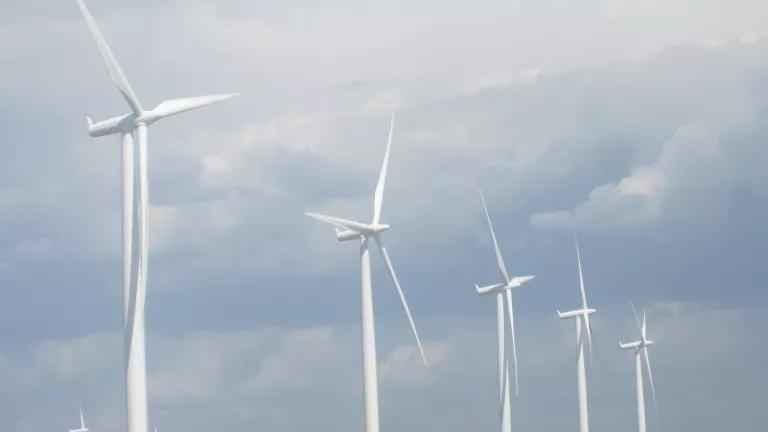Doctors Prescribe Climate Action for Better Health

America’s health professionals have an important message: Climate change is harming our health, but there’s something we can do about it.
About 280 doctors, nurses, researchers, and other health professionals from across the country gathered at George Mason University this week for the inaugural meeting of the Medical Society Consortium on Climate and Health. Three major themes emerged:
1. The health harms of climate change are not felt equally.
Anyone can get sick or hurt during hot summers, hurricanes, and other extremes fueled by climate change. The burden of these threats, however, falls more heavily on the most vulnerable members of society: the very young, the very old, pregnant women, people experiencing poverty, and some communities of color.
Dr. Cheryl Holder, an internist on the faculty of the Florida International University Herbert Wertheim College of Medicine, talked about one of her elderly patients who couldn’t afford to pay her electricity bill. As a result, the woman had more severe asthma symptoms on extremely hot days.
More than half of U.S. households with an annual income of less than $20,000 per year had trouble paying their electricity bills in 2015, putting them at greater risk of heat-related illnesses like heart and lung trouble.
2. We’re woefully bad at recovering from climate disasters.
One of the most powerful sessions of the conference focused on the damaging and long-lasting stresses that climate-related disasters put on children. Dr. Irwin Redlener, founder and director of the National Center for Disaster Preparedness at Columbia University, shared how catastrophes like Hurricane Katrina affect the very brain architecture of children, potentially leading to psychological problems as adults. The longer it takes to recover from disasters, the worse things get for our kids’ health.
Dr. Redlener used the ongoing crisis in Puerto Rico after Hurricane Maria to illustrate how bad the United States is at disaster recovery—a point amplified by Dr. Carissa Cabán-Alemán when she said "suicide rates have gone up incredibly" in the U.S. territory. Further north in Louisiana, schoolkids are still struggling to recover from massive flooding in 2016.
3. We have the tools we need to address climate change. Now we just need the courage to act.
The conference ended on a high note with a discussion of solutions.
Dr. Jeff Thompson, former CEO of Gundersen Health System in Wisconsin, was particularly eloquent about his realization that health care systems were harming patients by contributing to climate change and toxic air pollution.
Gundersen Health became the first health system in the United States to achieve energy independence. With an energy mix of landfill biogas, local biomass, geothermal, solar, and wind plus efficiency initiatives, waste reduction and recycling, and equipment upgrades, Gundersen Health has dramatically reduced its carbon footprint and waste output, keeping energy costs below 2008 levels, saving over $1 million in operational costs, and protecting patients. Their model shows that climate action doesn’t come at the expense of economic viability, but instead promotes it.
It was energizing to see health leaders put their heads together about how to tackle the climate crisis. After all, they’re the ones on the front lines of climate-related health impacts—and will need to help their patients, clinics, and hospital systems navigate a hotter, more extreme world. NRDC is proud to stand with our health partners as they call on federal, state, and local decision makers to build a cleaner, safer, healthier future for everyone.



